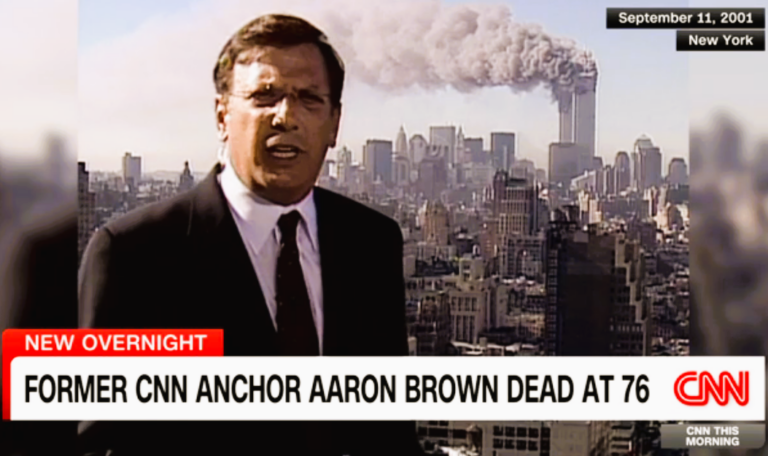Former CNN anchor, Minnesota native Aaron Brown dies at 76

NEW YORK (CNN) – Aaron Brown, the renowned CNN anchor who gained prominence for his coverage of the September 11 attacks and his pivotal role in shaping the network’s evening news format, died Sunday at 76, his family said.
Brown’s career began in radio in Minneapolis. The Hopkins native eventually moved to television journalism in Seattle before becoming the founding anchor of ABC’s overnight news program “World News Now” and anchoring “World News Tonight Saturday.”
He later joined CNN, where he became known for his incisive reporting. From 2001 to 2005, he anchored “NewsNight,” a program that combined breaking news with in-depth analysis, and earned acclaim for his ability to handle complex stories with sensitivity and tact.
CNN’s Anderson Cooper called Brown “a great writer and broadcaster.”
“Thoughtful, funny, and diligent, he had a truly unique talent and a beautiful way with words,” Cooper said.
September 11, 2001, marked Brown’s first appearance on CNN. He hadn’t been scheduled to go on air that morning, but news was breaking. And that day and in the days that followed, he quickly became a guiding presence for millions of viewers.
Brown’s coverage of the 9/11 attacks from the roof of CNN’s Manhattan office at 5 Penn Plaza near Madison Square Garden established him as a trusted figure during one of the darkest moments in American history, said CNN’s John Vause, who also reported from New York that day. Brown reported live on the attacks for 17 hours.
“When he was live on air, he just stopped and looked at it. And paused. And he shared this moment that everybody was thinking, ‘Good Lord. There are no words,’” Vause said, remembering how Brown took off his reporter hat to react when the South Tower of the World Trade Center collapsed.
Thrown into uncharted territory on his first day, Brown processed the unfolding horror with a poise that struck a chord with viewers.
“The South Tower, the second tower. The one on the left collapsed. It collapsed in a cascade of smoke and sparks,” Brown said in his segment. “This is devastation. There are 50,000 people who normally go to work in the Trade Center buildings.”
The following week, he went to Washington, DC. “He walked to a hotel foyer and everybody in that foyer stood up and applauded” to congratulate him on the live coverage, Vause added.
A month after September 11, Pulitzer Prize-winning television critic Howard Rosenberg praised Brown in a column in The Los Angeles Times, calling him “the steadiest man on television.”
Brown “is earnest and … trustworthy. A French horn in an industry dominated by kazoos.”
Ultimately, Brown “was at a terrible place at the right time,” Rosenberg wrote.
Brown embodied the mode of ABC’s Peter Jennings – “the anchorman’s anchor,” as Vause put him – shaping the nation’s perception of the tragedy with his calm demeanor and humanizing approach.
While he shied away from fame – “He didn’t like being in the spotlight outside of his office hours,” Vause said – Brown’s legacy endures, marked by his dedication to mentoring and storytelling.
Brown won the Edward R. Murrow Award for his 9/11 coverage.
Despite the accolade, he remained modest about his work, believing his reporting paled in comparison to the heroism displayed by first responders.
“I think when that building fell, I understood better than any other point in my life, before or since, what a hero meant. It’s not that we didn’t try to tell the story; it’s that the story itself is too great to tell,” Brown said in 2016.
“A million things had been running through my mind about what might happen … it just never occurred to me that (the buildings) would come down,” Brown said. “It’s the only time I thought, ‘Maybe you just don’t have what it takes to do a story like this.’ Because it just had never occurred to me.”






